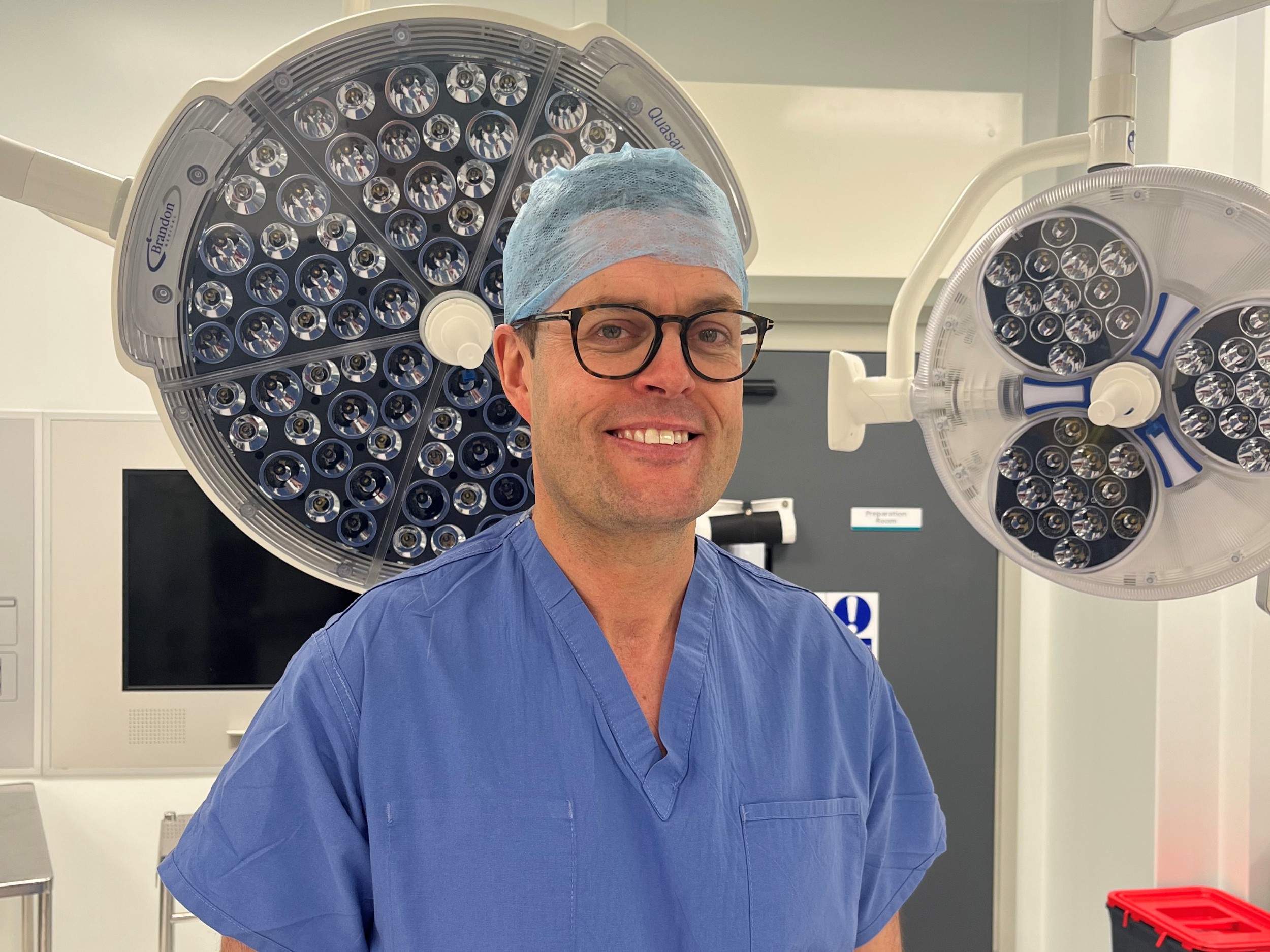Local people living with bowel cancer could soon benefit from potentially life-changing technology, thanks to a new global clinical trial into cancer vaccines.
Mr Robert Jones, Consultant Hepatobiliary Surgeon at Liverpool University Hospitals NHS Foundation Trust, has been appointed UK Chief Investigator for the trial exploring personalised tumour vaccines. The study will use messenger-ribonucleic-acid (mRNA) technology based on the genetic code from each patient’s cancer in order to tailor their treatments and tackle tumours.
Liverpool will be the central hub for the study, which is in partnership with German pharmaceutical company, BioNTech. Working alongside The Clatterbridge Cancer Centre NHS Foundation Trust and the University of Liverpool, the trial hopes to recruit the first local patients in April – with 350 UK patients recruited by October.
Mr Jones is the Bowel Cancer UK and Royal College of Surgeons UK Lead for research into advanced bowel cancer (also known as colorectal), and holds a National Institute for Healthcare Research (NIHR) Fellowship for clinical research and trials in metastatic colorectal cancer (when cancer spreads), and liver and gallbladder disease.
He said: “This is an incredible opportunity to change the face of cancer treatment. I’m delighted to help run this trial which we hope will mean more people are cured of colorectal cancer after surgery.
“Making vaccines for cancer has always been very difficult, because unlike other diseases, cancer has a unique appearance to the patient’s own immune system. Using new technology, we are now able to quickly and efficiently develop a vaccine that is specific to each individual’s cancer. The early results have been really encouraging, and we know these vaccines are very well tolerated with far less toxicity than chemotherapy.
“This study builds on work that LUHFT has delivered over the last couple of years in collaboration with BioNTech and the University of Liverpool, and recognises the Trust as an organisation that places research at the front and centre of routine clinical care.”
Patients in the trial will have had surgery for colorectal cancer and been offered routine follow-on chemotherapy. They will be told by their surgeons about the trial and can then discuss with their oncologist if they would like to take part. Some patients will be offered additional vaccine treatment after their chemotherapy. Other patients with more advanced cancers (metastatic disease) will be offered the vaccine with the hope that it might help to shrink and control it.
Dr Jim Gardner, Chief Medical Officer at Liverpool University Hospitals NHS Foundation Trust, said: “The prospect of changing how we treat cancer using vaccines is momentous. To have this trial based in Liverpool and led by Mr Jones is a wonderful opportunity for our local patients to receive potentially life-changing, personalised care. It further bolsters how our region is becoming a leader in delivering innovative, healthcare research, and we look forward to seeing the results of this trial.”
Professor Lennard Lee, NHS England National Clinical Advisor for Cancer Innovation and Consultant Medical Oncologist (University of Oxford), said: “The UK has developed huge expertise at delivering vaccine studies following the coronavirus pandemic, with many patients taking part from Liverpool. Off the back of this, it is incredibly exciting to have a cancer vaccines trial open for those affected by colorectal cancer. It shows the potential of our best NHS hospitals hyper-accelerating vaccine development and delivery, and it is fantastic that Mr Jones and the Liverpool team are leading the way with this major national project."
The trial looks to build on the successes of COVID-19 vaccines that use the same mRNA technology. Nine other trusts will also be taking part in the trial, alongside Liverpool University Hospitals.
